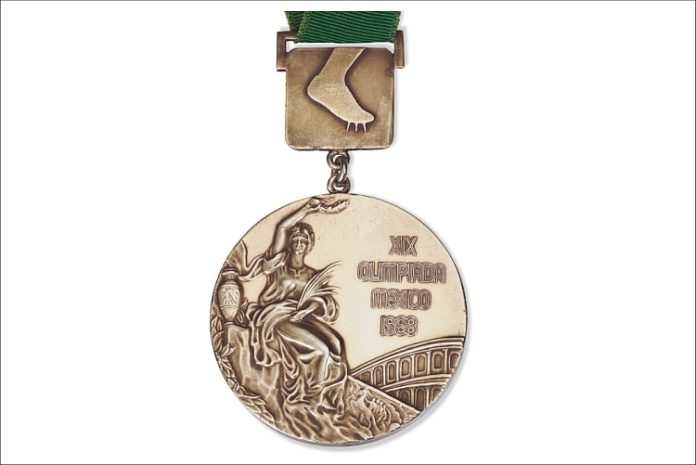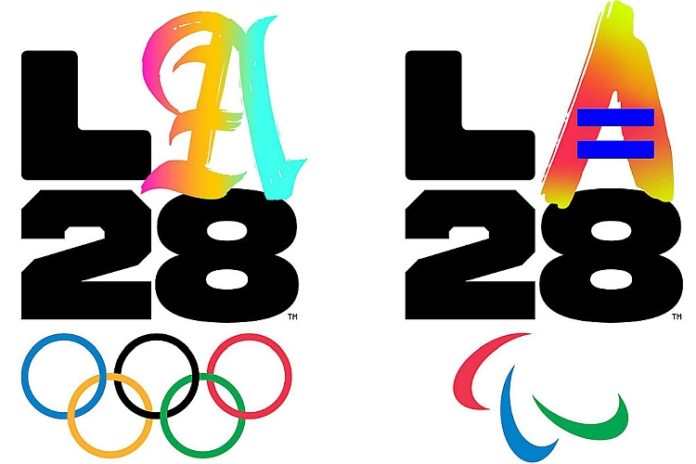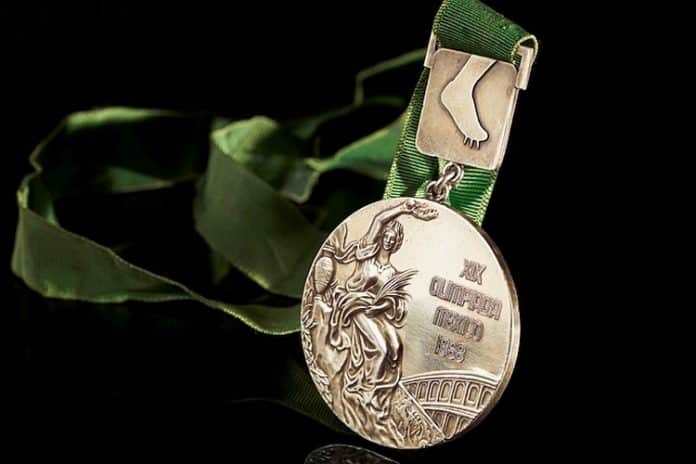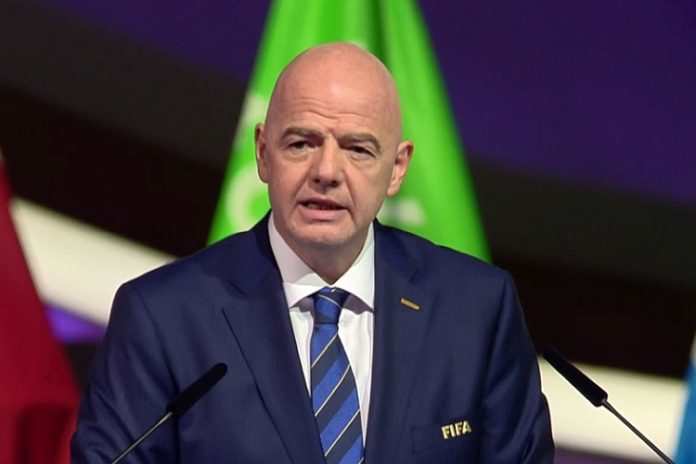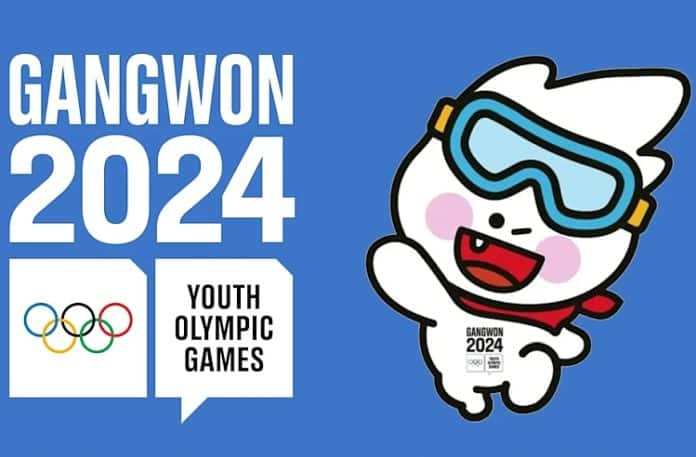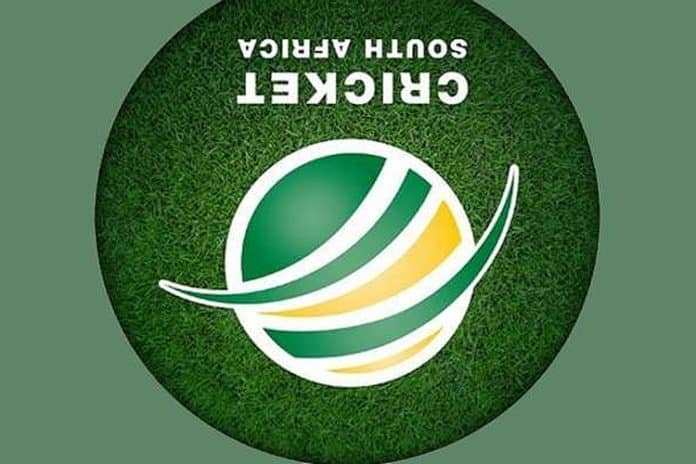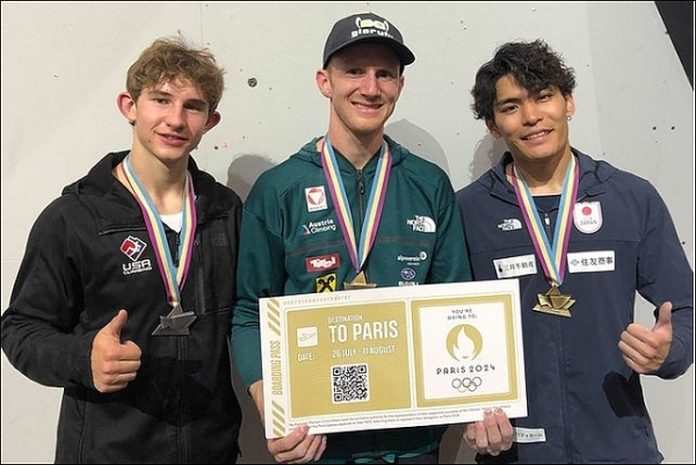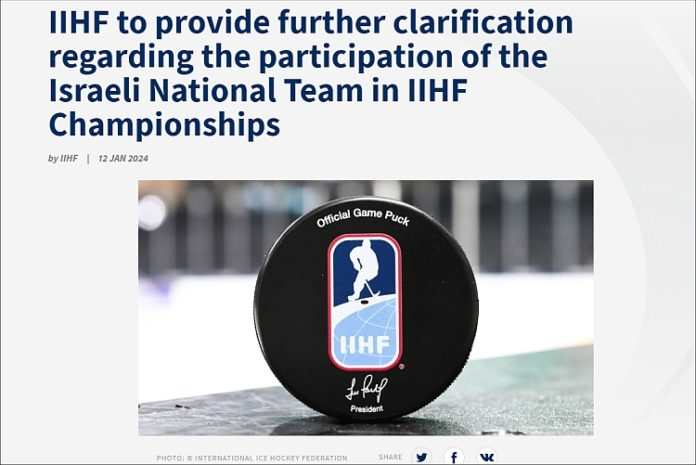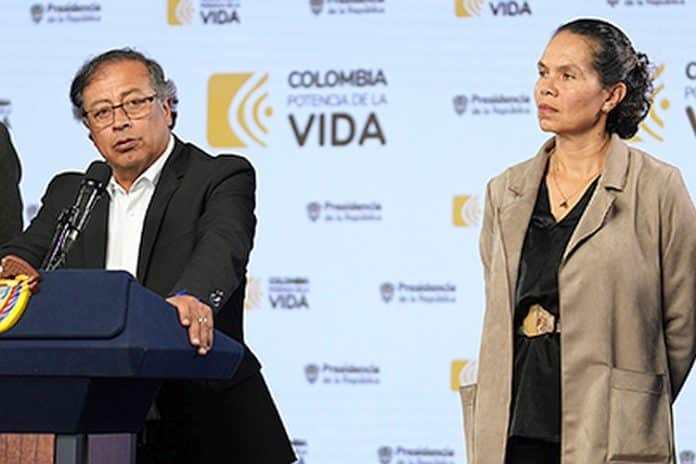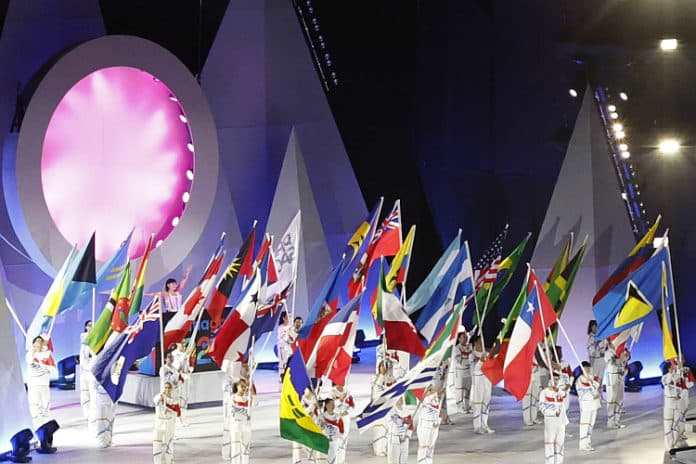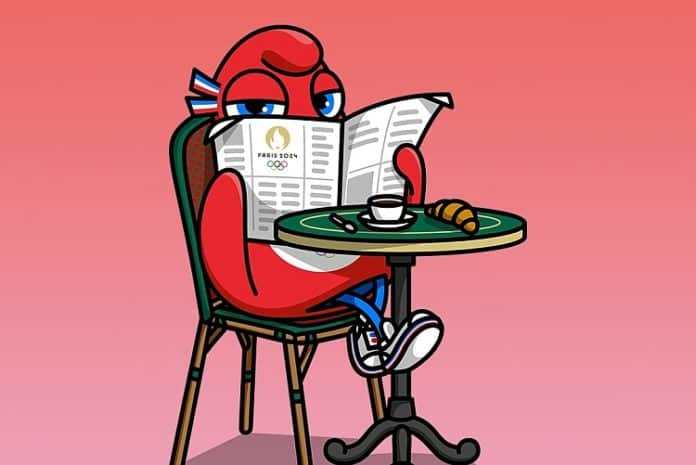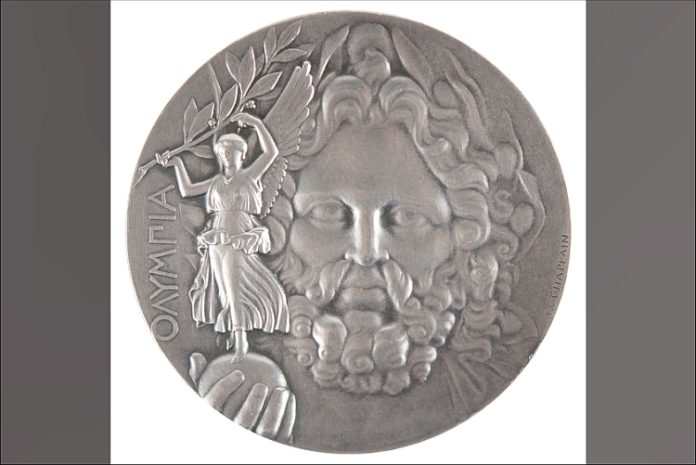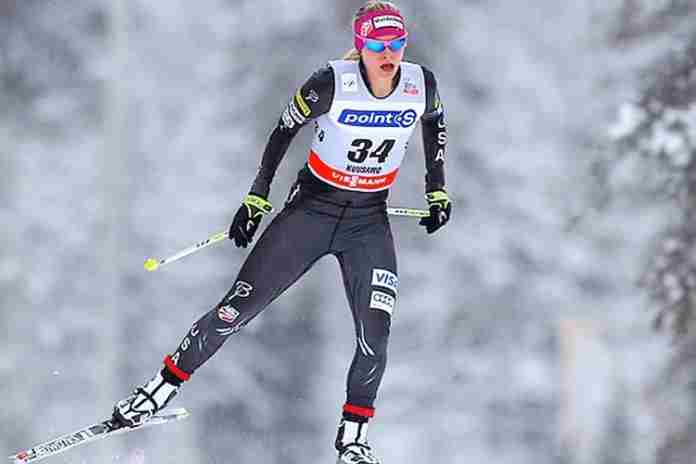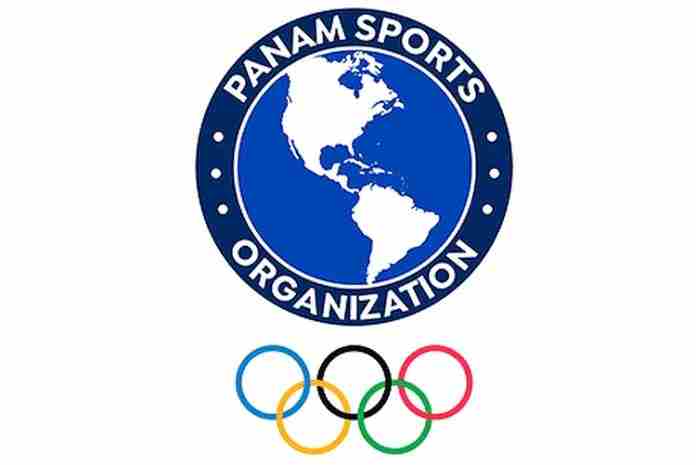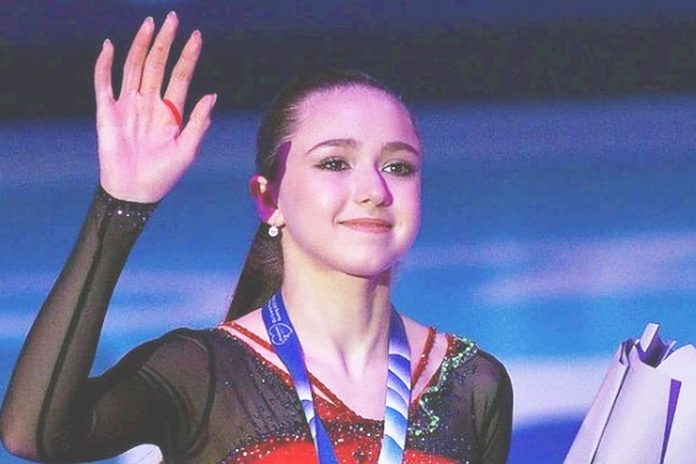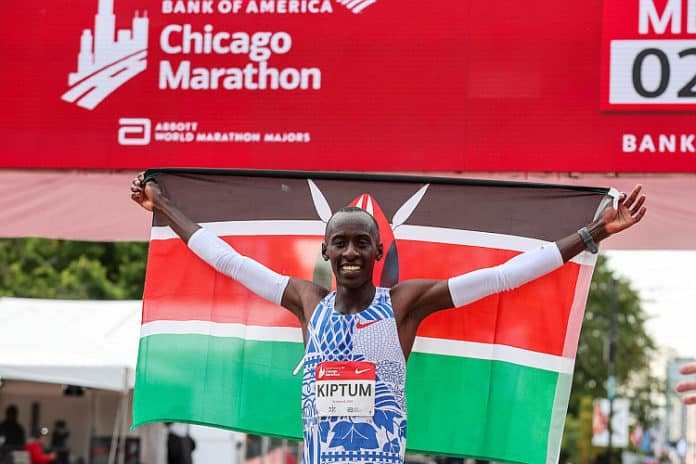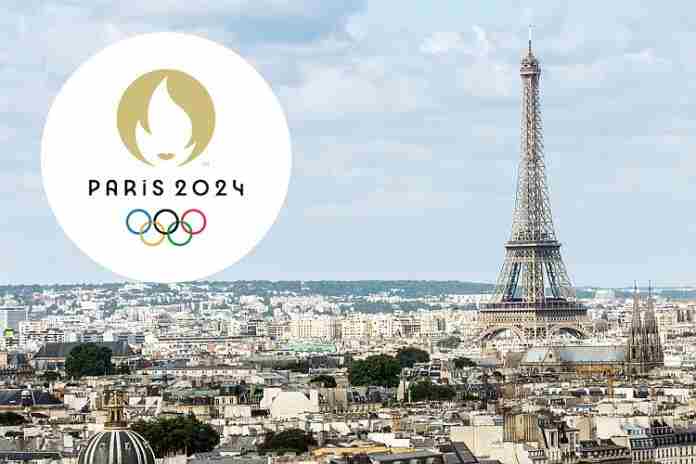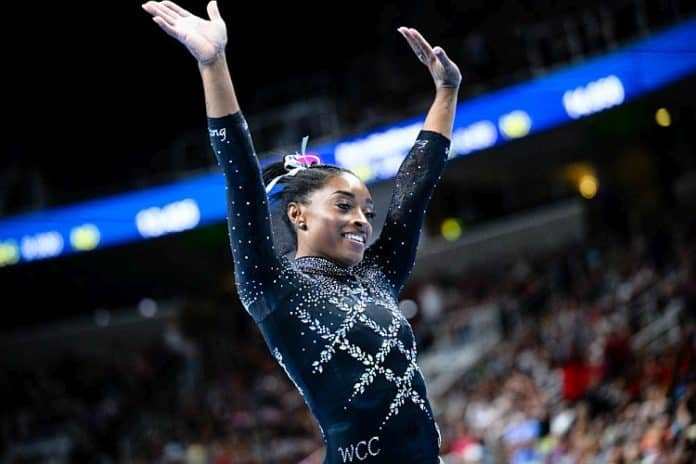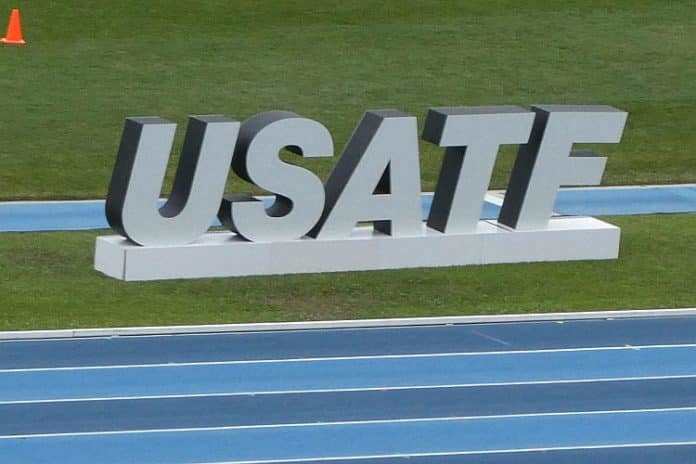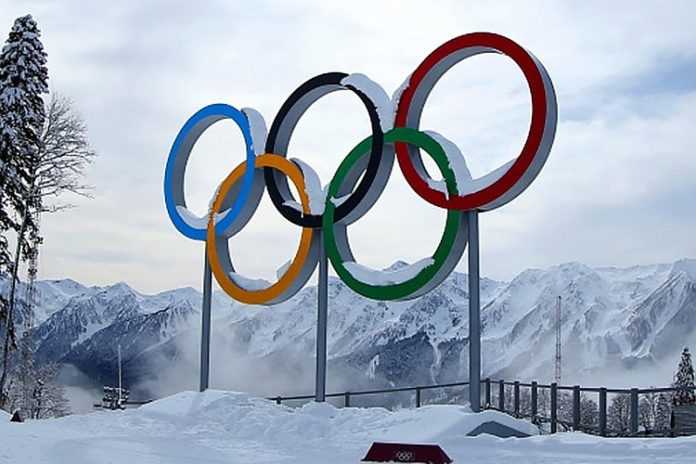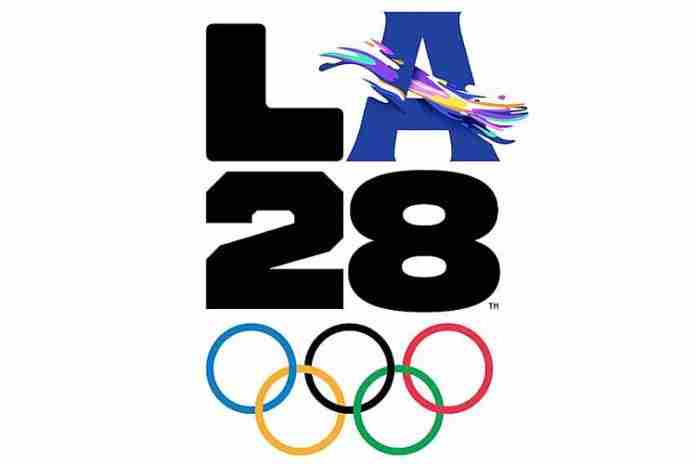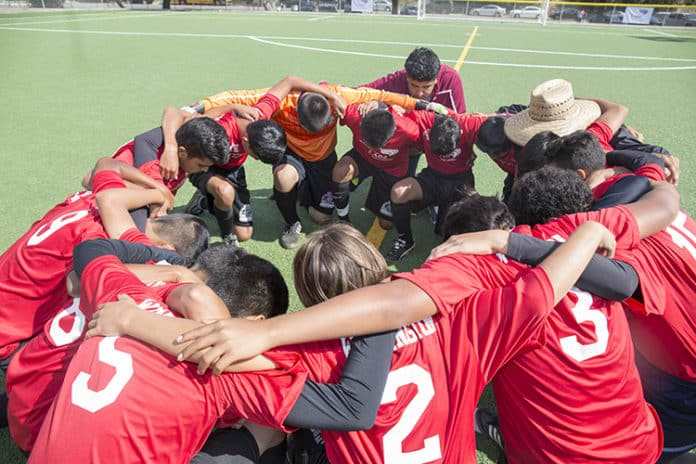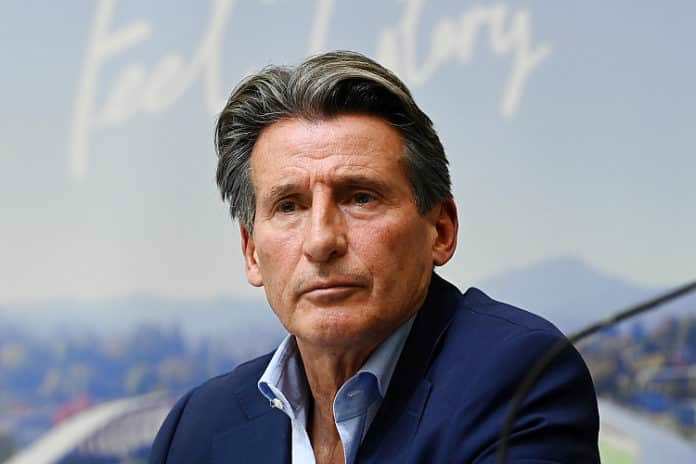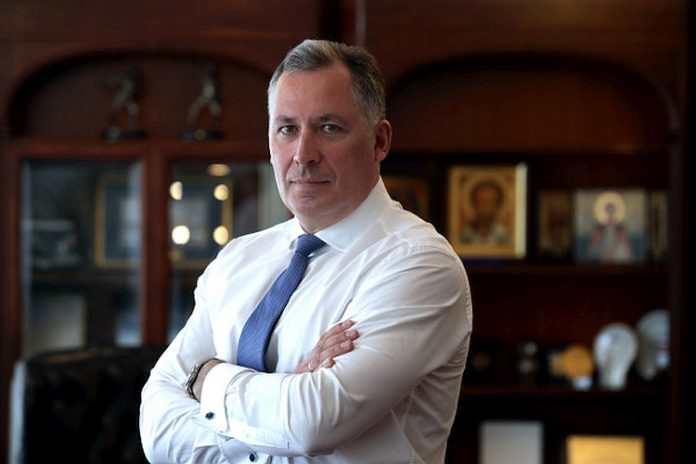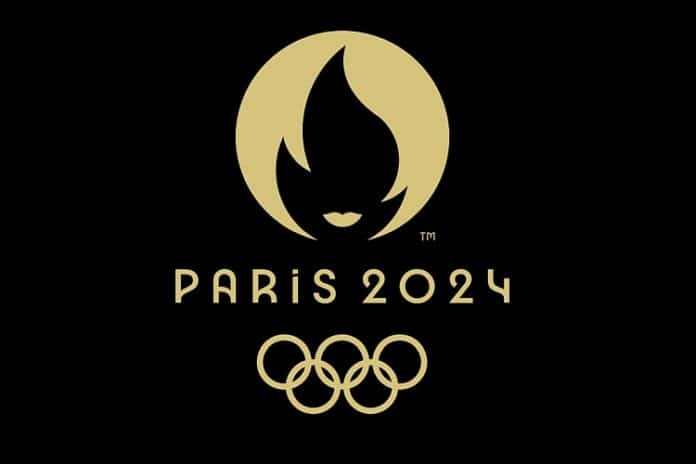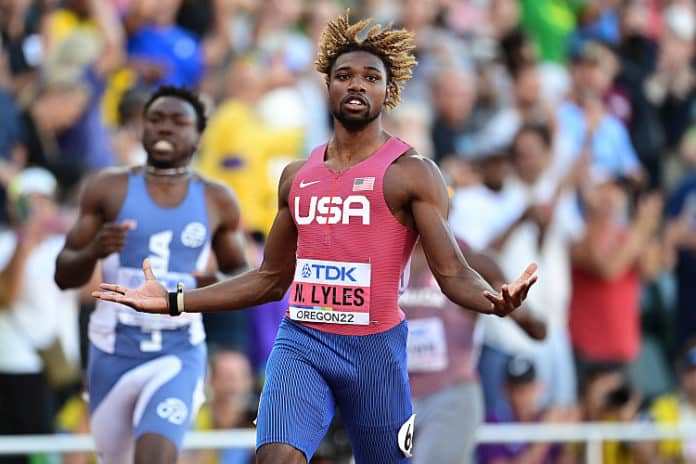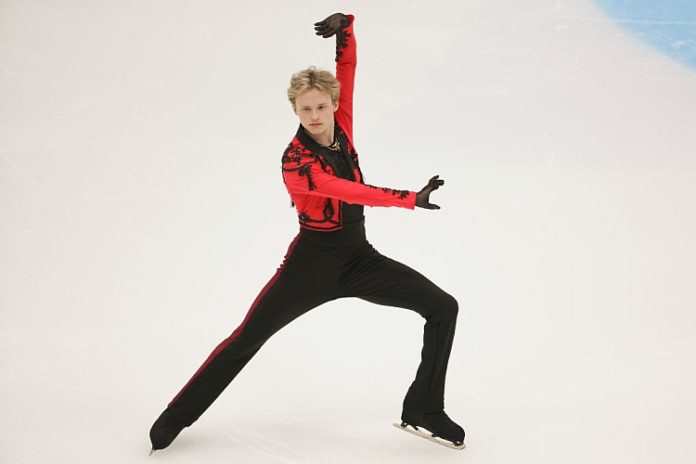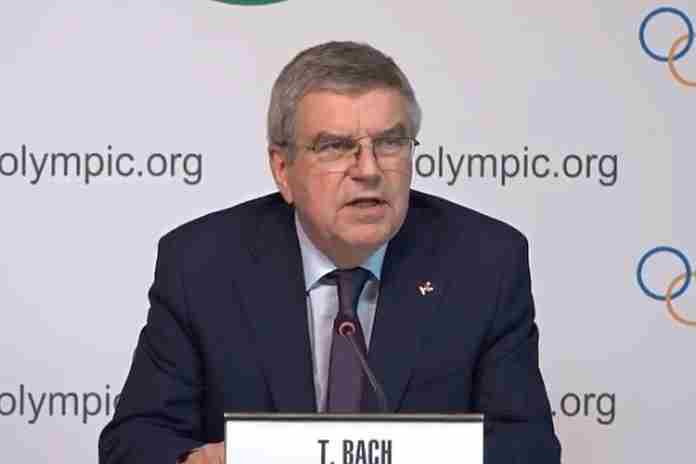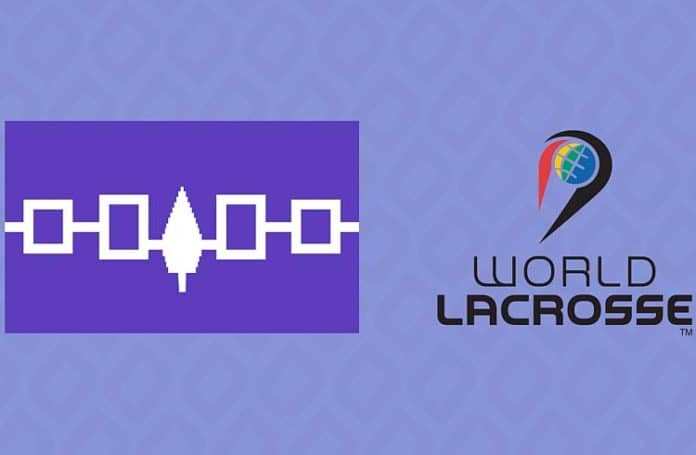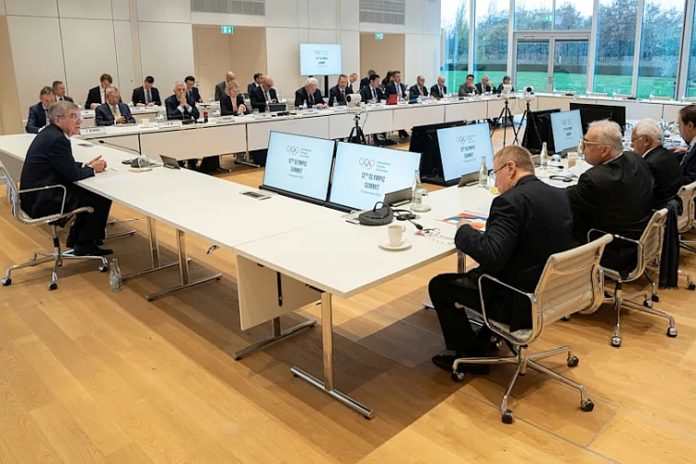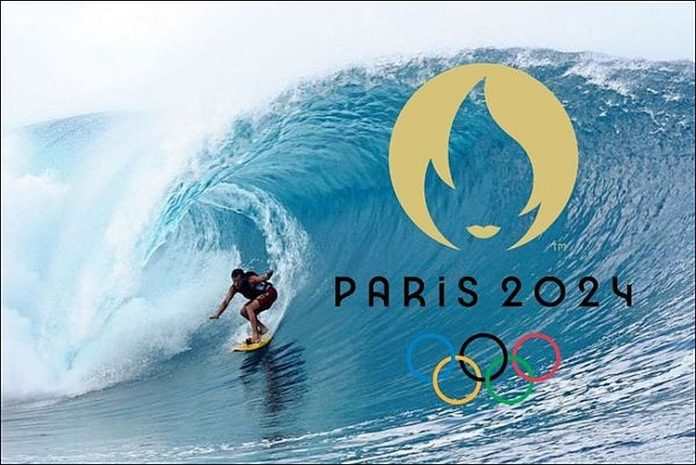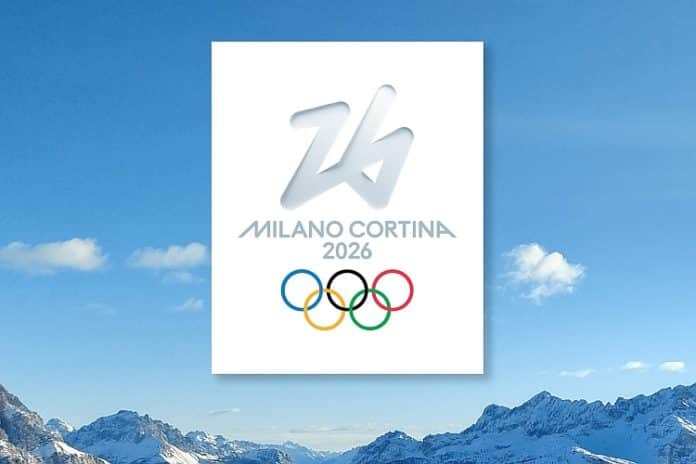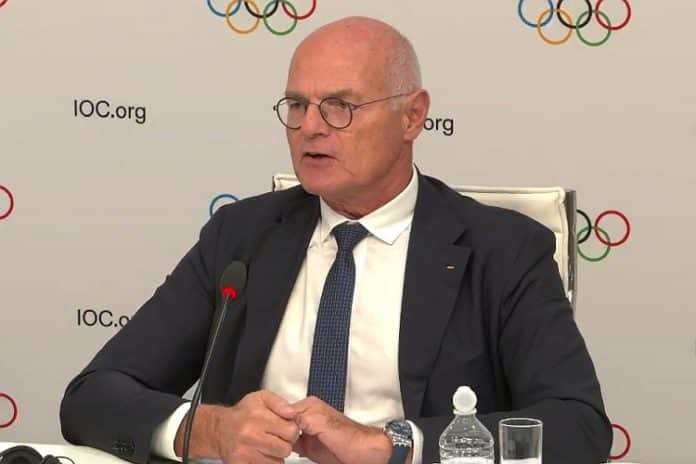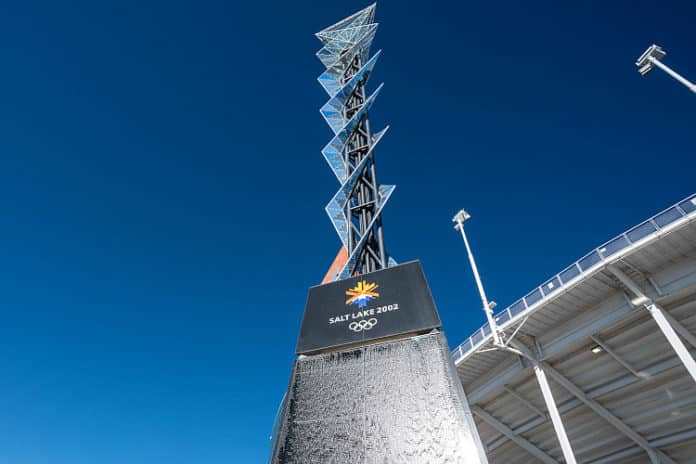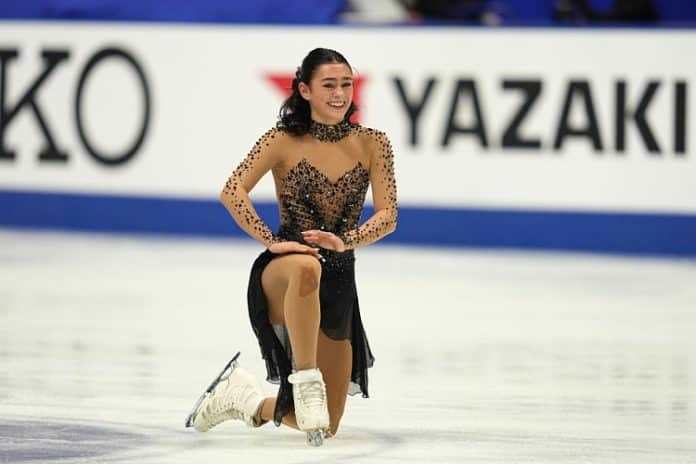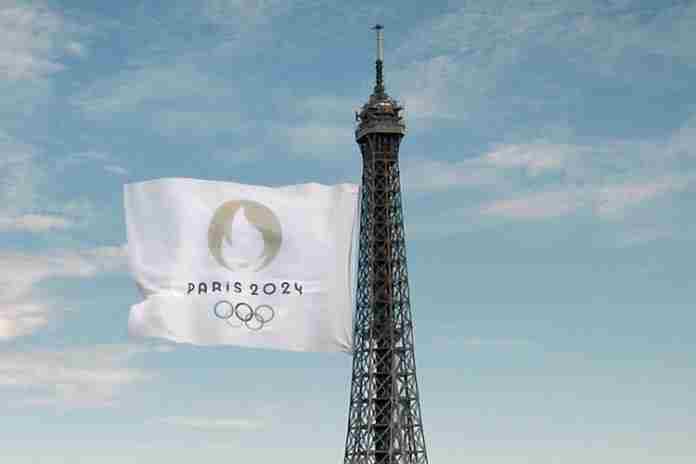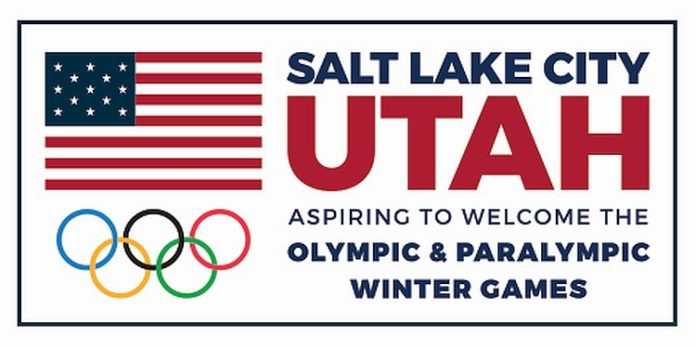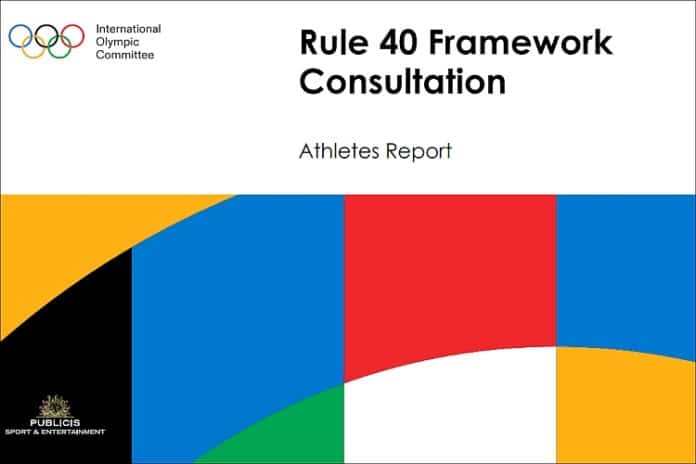★ The Sports Examiner: Chronicling the key competitive, economic and political forces shaping elite sport and the Olympic Movement.★
★ To get The Sports Examiner by e-mail: sign up here! ★
≡ THE 5-RING CIRCUS ≡
1. Russians hardly excited about IOC’s opening for Paris 2024
2. Ukraine to weigh value of Paris participation
3. U.S.-Mexico bid sees $3 billion FIFA Women’s World Cup 2027 blockbuster
4. Milanin, Chock & Bates take first Grand Prix Final golds
5. International Testing Agency begins Rio 2016 re-testing
● Although the International Olympic Committee is allowing some Russian and Belarusian athletes to compete at the Paris 2024 Olympic Games, Russian response to the announcement was anything but enthusiastic.
● The reaction from Ukrainian officials, starting with President Volodymyr Zelensky, was furious and bitter. A discussion on whether Ukraine will participate in Paris will come later.
● The joint U.S.-Mexico bid for the 2027 FIFA Women’s World Cup projects a staggering $3 billion in revenue, more than five times the amount from this summer’s Australia-New Zealand spectacular.
● U.S. stars Ilia Milanin and Madison Chock and Evan Bates got significant wins at the ISU Grand Prix Final in China, with Milanin moving to no. 3 all-time with his lifetime best score of 314.66.
● The International Testing Agency announced that it is beginning the re-test of samples from Rio 2016. Its re-analysis effort of London 2012 resulted in 73 new doping violations!
● World Championship: Handball (five quarterfinalists confirmed so far) ●
● Panorama: Pan American Games (Olvera and Mac Neil honored as top athletes) = Alpine Skiing (2: Shiffrin gets World Cup win no. 91 in St. Moritz; Odermatt wins in Val d’Isere) = Archery (Chinese Taipei sweeps Taipei Indoor Open) = Athletics (2: Nuguse and Hiltz win Honolulu miles; Russia’s Sidorova retires) = Beach Volleyball (U.S.’s Nuss & Kloth take Pro Tour Final) = Biathlon (Boe brothers win two golds each in Austria) = Bobsled & Skeleton (Love wins Monobob World Cup in La Plagne) = Boxing (Crocklem, Lugo, Felix, Simon defend U.S. national titles) = Cross Country Skiing (Diggins does it again with 10 km win) = Fencing (Massialas scores seventh World Cup Foil gold) = Freestyle Skiing (3: Naeslund, newcomers win in Ski Cross; Ferreira and Gu win Halfpipe season openers; Kingsbury extends own Moguls wins record) = Luge (U.S.’s Di Gregorio & Hollander with historic Doubles win) = Rugby Sevens (Argentina and Australia win in Cape Town) = Short Track (two wins each for Santos-Griswold and Pierre-Gilles in Beijing) = Ski Jumping (Geiger counts two wins in Klingenthal) = Snowboard (2: James and Cai win Halfpipe openers in China; Hasegawa and Sadowski-Synnott win in Big Air) = Speed Skating (Takagi takes two, Jackson and Stolz one each in World Cup) = Table Tennis (China sweeps to first Mixed Team title) = Weightlifting (North Korea dominating IWF Grand Prix II) ●
1.
Russians hardly excited about IOC’s opening for Paris 2024
On Friday, the International Olympic Committee published its regulations for allowing individual Russian and Belarusian athletes to compete at the 2024 Olympic Games in Paris.
Among those who were the least impressed were the Russians.
“Should [our] athletes go to the Olympic Games in Paris? It will be up to the athletes and the professional community to decide. Late publication of criteria? Nothing has surprised me for a long time, since I know the goal of those who do this is to cause us as much damage as possible in everything.”
That’s Russian Foreign Ministry spokesperson Maria Zakharova, writing in Sport-Express on Friday.
State Duma deputy – and 2006 Olympic speed skating gold medalist – Svetlana Zhurova told the Russian news agency TASS tied the IOC’s announcement on Friday to Russian President Vladimir Putin saying he would run for re-election:
“I see this as a savage attitude towards us, one might even say provocative, because the decision was made on the day when the president announces his candidacy for the elections. And this despite the fact that people just recently said that they were going to take decision in March. And now they have suddenly changed their decision.”
Dmitry Svishchev, the Chair of the State Duma Committee on Physical Culture and Sports, distrusts the IOC’s announcement:
“On the one hand, someone may perceive this decision as positive. But, in my opinion, this is another IOC game. Now they are waiting for a response, monitoring this, analyzing everything. And it is not clear why the decision announced now, although they promised to do it in March next year. This is another round of the game that the IOC has been playing with our athletes for a long time.
“Although this is a movement towards the athletes who have qualified, we remember that the IOC promised to check everyone before the Games themselves, and even during them. Therefore, there are no guarantees for our athletes yet.”
And two-time Olympic ice hockey winner and Hockey Hall of Fame member Vyacheslav Fetisov, also a State Duma member, ominously warned that a blanket decision could be made for Russian athletes later:
“Firstly, it’s not a fact that even they will be allowed in, secondly, they may come up with additional criteria, and thirdly, many guys even in this status cannot go, because they will not have time to qualify, and teams are not allowed to compete at all.”
The TASS story added that “a general decision could be made on the issue of Russian participation in the Olympics.”
Russian Sports Minister Oleg Matytsin was more optimistic:
“Of course, those athletes who have achieved success in competitions and won the right to participate, they will probably participate. We always root for ours, these are our athletes, members of our sports family, a product of our sports system, no matter how they tried to shred it, to create a split within Russian society, to pit some athletes against others. …
“It is quite difficult to limit us, these attempts have been made more than once in our century-old history. … Despite this, one of the most powerful sports systems has been created in the country. And today, these sanctions allow us to evaluate our capabilities once again. We do not deny that participation in the Olympics is an athlete’s dream, but the conditions that are offered to us are absolutely discriminatory and run counter to the basic Olympic principles of the international sports family. The heads of international sports federations and the IOC are damaging the image of the Olympic Games themselves.”
Several national federation heads made statements. Russian Diving Federation head Stanislav Druzhinin told TASS:
“This decision does not change anything, with these criteria the sporting principle is not respected. We cannot send the strongest athletes, we will have to send those who take fifth to eighth places. The Diving Federation will still not send athletes to international competitions.
“We have different selection criteria, if we had the opportunity and the sports principle was respected, we would do the same. We cannot send a person who is listed in CSKA or Dynamo, and if they ask you to sign all sorts of papers, then that’s for sure not about us, we will not violate the current [national] sports legislation.”
The head coach of the Russian artistic gymnastics team, Valentina Rodionenko continued her negative view:
“There is no need to talk about any breakthrough. The IOC, having admitted our athletes to the Olympics, retained the same severely humiliating conditions that were previously sounded in recommendations to international federations. I believe that we do not need to go to Paris under such conditions.
“As for the gymnasts, we still need to try to qualify through the [FIG Artistic] World Cup stages. I think that it will be very difficult to show a high result. The athletes will be forced to perform under great psychological pressure with ambiguous judging, I think.”
All-Russian Federation of Rhythmic Gymnastics Irina Viner was also negative:
“Such humiliating conditions without a flag and anthem are unacceptable to us. Moreover, in many sports our athletes have already lost the opportunity to qualify for the Olympics. In rhythmic gymnastics, after the ban of the European Gymnastics Union, we were deprived of the opportunity to fight for the only ticket next spring.”
Even more strident was Maxim Agapitov, President of the Russian Weightlifting Federation:
“The conditions for the admission of Russian weightlifters to international competitions are impossible, unacceptable, discriminatory, violate human rights and the Olympic Charter, call for violating the legislation of the Russian Federation. This kind of provocation is not considered by [the Russian Weightlifting Federation] as an opportunity to participate in the festival, which by some absurd accident is called the ‘Olympic Games.’
“Neutral status is also not considered by our athletes in exchange for admission. We are ready to compete on equal terms for all athletes in competitions organized in accordance with the organization’s charter and other regulatory documents. Corruption, fraud, manipulations with doping and nepotism, combined with dependence on the money of the International Olympic Committee, determined the solidarity of their views and compliance. This, in turn, ensured that the international federation carried out all the political ‘recommendations’ of the IOC, despite their mutual destructiveness.”
2.
Ukraine to weigh value of Paris participation
As expected, the Ukrainian reaction to the IOC’s participation guidelines for Russian and Belarusian athletes was bitterly negative.
On Sunday, Ukrainian President Volodymyr Zelensky posted on X (ex-Twitter):
“Ukraine has launched a marathon of honesty, and I urge you to join.
“The International Olympic Committee needs honesty. Honesty it has unfortunately lost. While Russia kills and terrorizes, representatives of the terrorist state have no place at sports and Olympic competitions.”
Dmytro Kuleba, the Foreign Minister of Ukraine, posted:
“The IOC essentially gave Russia the green light to weaponize the Olympics. Because the Kremlin will use every Russian and Belarusian athlete as a weapon in its propaganda warfare. I urge all partners to strongly condemn this shameful decision, which undermines Olympic principles.”
The interim Sports Minister, Matviy Bidnyi, told Reuters:
“The decision to participate should be made based on what it will bring to the country, what the reaction will be and how much it will bring us closer to victory.
“We should not make rash decisions. It will be a balanced decision and we have to communicate it to the public. We will weigh the pros and cons very carefully. …
“If we continue to see the absolutely non-constructive position of the IOC, to continue to tolerate the participation of the henchmen of the bloody [Russian] regime, this will make our participation impossible.”
Ukrainian officials have spoken about organizing a potential boycott of the Paris Games by other countries, but have not pushed this in comments following the IOC’s Friday announcement.
3.
U.S.-Mexico bid sees $3 billion FIFA Women’s World Cup 2027 blockbuster
FIFA confirmed that bid proposals for the 2027 FIFA Women’s World Cup were received Friday from the three expected bidders, from Brazil, a joint proposal from the U.S. and Mexico and a three-country offer from Belgium, Germany and the Netherlands. The stunner? A projected $3 billion in revenue, some 526% of the record revenue from the 2023 FIFA Women’s World Cup.
The highlights:
● The Belgium-Germany-Netherlands bid offers 13 stadiums, including Brussels, Charleroi, Genk, Ghent (BEL), Cologne, Dortmund, Dusseldorf, Gelsenkirchen (GER) and Dutch sites in Amsterdam, Eindhoven, Enschede, Heerenveen and Rotterdam.
As for finance, the proposal states, “BNG2027 aims to Break New Ground for the FIFA Women’s World Cup 2027 by hosting the most commercially attractive women’s tournament to date, increasing revenues by at least 50 per cent compared to the 2023 edition.”
That would be a minimum of $285 million above the $570 million generated by Australia-New Zealand 2023, or $885 million total.
● Brazil’s proposal includes 10 stadiums in Belo Horizonte, the national capital of Brasilia, Cuiaba, Fortaleza, Manaus, Porto Alegre, Recife, the iconic Estadio Maracana in Rio de Janeiro, Salvador and Sao Paulo.
No specific financial projections was included.
● The U.S.-Mexico bid aims to be a blockbuster for the women’s game as the 1994 U.S. World Cup was for the men’s side:
“We know that a FIFA Women’s World Cup of the scale offered by the United States and Mexico will unlock the full potential of this tournament at a unique moment in time, capitalizing on economic opportunity by bringing over 4.5 million fans into stadiums, capturing the highest TV viewership ever for a women’s sporting event and generating over $3 billion in total revenue.”
The stadium offer puts up most of the 11 U.S. stadia offered for the 2026 FIFA World Cup, in Atlanta (Mercedes-Benz Stadium), Boston (Gillette Stadium), Dallas (AT&T Stadium), Houston (NRG Stadium), Kansas City (Arrowhead Stadium), Los Angeles area (Rose Bowl), Miami (Hard Rock Stadium), New York/New Jersey (Metlife Stadium), Philadelphia (Lincoln Financial Field), San Francisco area (Levi’s Stadium) and Seattle (Lumen Field).
The expanded selection from Mexico includes Guadalajara (Akron Stadium), Mexico City (Estadio Azteca) and Monterrey (BBVA Stadium) from 2026, plus new options in Leon (Leon Stadium), and Queretaro (Estadio La Corregidora).
And the commercial opportunity was underlined again:
“$3 billion is on the table in this U.S. and Mexico-hosted Competition, with the opportunity to make this the largest, most commercially successful women’s sporting event the world has ever known. We have the ability to dramatically raise the stakes for women’s football and benefit Member Associations and the sport not just in North America but around the globe for years to come.”
The U.S. Soccer Federation announcement emphasized:
“What is laid out in the NEW HEIGHTS bid represents the art of the possible. The bid proposes an integrated partnership model that brings host cities, stadiums, partners and FIFA together, allowing the ecosystem to collectively tap into greater economic benefits and drive the women’s game forward. The cities and infrastructure included in the bid represent just a fraction of those across both countries that have the experience and capabilities necessary to host. The facilities detailed in the bid materials act as examples, or an initial proposal, knowing that there are tens of other cities across the two nations equipped and ready to host if called upon.”
FIFA will undertake a review of all three proposals; the host selection will be made by the FIFA Congress in Bangkok (THA) on 17 May 2024.
4.
Milanin, Chock & Bates take first Grand Prix Final golds
American teen star Ilia Malinin put on a show to remember at the ISU Grand Prix Final in Beijing (CHN), winning his biggest international prize yet with a spectacular performance and a win by more than 17 points over Japan’s two-time World Champion Shoma Uno!
After leading by 88/100ths following the Short Program, Malinin packed his Free Skate program with quadruple jumps and immediately fell on his patented opening quad Axel. But he followed up with a quad Lutz-triple toe, quad Salchow and toe, a quad Lutz-Euler-triple Salchow and the triple Lutz-triple Axel sequence and scored a lifetime best of 207.76 points for a personal-best total of 314.66! He said afterwards:
“I’ll be honest, after the fall I was quite really disappointed in myself. I really wanted to come out here and show that quad Axel to everyone. Even though it didn’t happen, I still had to focus on the rest of the program and get through it.
“I was not really sure [of the win] because I thought that the fall would really take away a lot of the points. I’m pretty surprised with how high the technical score was. It was something that I’ve never thought I would see. And in that case, with that fall, I think that there’s still room for a lot more for the technical score.”
Uno finished second in the Free Skate and totaled 297.34 for second, with teammate Yuma Kagiyama a clear third at 288.65.
Malinin, still 19, moved up to the no. 3 performer all-time, with the sixth-highest score in history. Observed former Chicago Tribune Olympic reporter and figure-skating authority Phil Hersh:
“This scoresheet is just WOW. Yes, Ilia Malinin fell on 4A. But he followed with five other clean quads, two opening combos in bonus area, to win the Grand Prix Final by 17 points over 2 time world champion Shoma Uno of Japan, who skated well. Now 2026 Oly favorite? I say yes.”
Americans Madison Chock and Evan Bates, the 2023 World Champions, finally won the Grand Prix Final on their seventh try (!), scoring 221.61 points and winning both the Rhythm Dance and the Free Dance, both with season-best scores. They had won four silvers in this event, but claimed their first gold.
“I guess seven is our lucky number,” said Chock. “This has been a goal of ours for a long time. We’ve been to seven finals, and all of them have been wonderful. But I think this one is the best one so far. Bates added: “This week, we really skated our best. So we’re really pleased with the way everything went.
Worlds silver winners Charlene Guignard and Marco Fabbri of Italy took the silver at 215.51, and Canadian stars Piper Gilles and Paul Poirier – the reigning Worlds bronze medalists – won bronze with 213.58 points.
Two-time World Champion Kaori Sakamoto (JPN) was an easy winner in the women’s competition, taking both the Short Program and Free Skate to win with 225.70 points, giving her wins in all three of her Grand Prix events this season. Belgium’s Leona Hendrickx, the Worlds silver and bronze medalist, was second after Short Program and held on, scoring 203.36. Japan’s Hana Yoshida moved up from fourth to the bronze with a second in the Free Skate, scoring a total of 203.16. American Isabeau Levito finished fifth at 191.86.
The Pairs was won by Minerva Fabienne Hase and Nikita Volodin (GER), who led after the Short Program, then finished second in the Free Skate, but totaled 206.43 points, just enough to edge Free Skate winners Sara Conti and Niccolo Macii (ITA: 205.88) and Canada’s Deanna Stellato-Dudek and Maxine Deschamps (204.30).
5.
International Testing Agency begins Rio 2016 re-testing
Look for some of the results from the Rio 2016 Olympic Games to be revised, as the International Testing Agency announced Friday that it is beginning its “re-analysis” program.
This effort severely changed the results of the London 2023 Games – the first for the re-analysis effort – as noted in the statement:
“As a result of this program, 73 Anti-Doping Rule Violations (ADRVs) were sanctioned leading to the withdrawal of 31 and the reallocation of 46 Olympic medals in four sports.
“The majority of these positive re-analysis results stemmed from a detection method for anabolic steroids that was introduced after the Games in 2012. This detection method was available to the anti-doping laboratory in Rio for the initial analysis of the samples collected during the Olympic Games in 2016.”
The effort now will again use the most updated techniques available, seven years after the close of the Rio Games in a two-step effort:
“The ITA’s re-analysis program for Rio 2016 is organised in two phases. The first phase focuses on samples from athletes who are still actively competing. It is to be completed before the Olympic Games Paris 2024, in parallel with the ITA’s Paris 2024 Pre-Games initiative, to ensure that samples from athletes potentially participating in the upcoming Games are re-analysed before the event.
“The second phase will take place in 2025 so that all re-analysis including potential results management procedures stemming from positive results, will be performed before the statute of limitations in July 2026.”
≡ WORLD CHAMPIONSHIPS ≡
● Handball ● The 26th IHF Women’s World Championship in Denmark, Norway and Sweden is almost through the second round of pool play now, with several of the quarterfinalists now set.
The four second-round groups will complete play on Monday (11th), with five quarterfinalists qualified:
● Group I: Sweden (4-0)
● Group II: Norway (4-0), France (4-0)
● Group III: Germany (4-0), Denmark (4-0)
In Group I, Montenegro (3-1) and Croatia (2-1-1) are vying for one spot with one game left; in Group IV, the Netherlands (4-0) leads, but with Spain (3-1), the Czech Republic (3-1) and Brazil (2-2) all still with playoff possibilities.
Norway is the defending champion from 2021, with France (2nd), Denmark (3rd) and Spain (4th) all still in the mix.
The quarterfinals will be held on 12-13 December in Trondheim (NOR) and Herning (DEN); the semis on 15 December in Herning and the final on 17 December in Herning.
≡ PANORAMA ≡
● Pan American Games ● The Panam Sports Awards were held on Saturday evening in Miami (USA), with top performers from the Santiago Games honored for outstanding performances.
The best athlete winners were Osmar Olvera, the triple diving gold medalist from Mexico for the men and Maggie Mac Neil, Canada’s seven-medal-winning female swimmer, including five golds.
The top team honorees include the Colombian men’s baseball squad and the women’s football gold medalists from Mexico. Colombia’s Erika Lasso received the Fair Play Award for her help in bringing an injured competitor in the women’s 48 kg class off the tatami on her back.
The award for the top National Olympic Committee went to the U.S. Olympic & Paralympic Committee, with led the medal table once again, with host Chile honored as the Most Improved NOC, with 79 medals. Additional awards were made to legacy stars and for the Parapan American Games.
● Alpine Skiing ● The irrepressible Mikaela Shiffrin (USA) made more magic, this time at St. Moritz (SUI) with her record 91st career World Cup win, this time in a Downhill, ahead of four-time World Cup discipline champ Sofia Goggia of Italy.
Shiffrin’s Saturday win came from the third position in the order, finishing in 1:28.84 on the Corviglia course and taking the lead from two-time World Cup winner Federica Brignone (ITA: 1:29.01). But it was only after Goggia – skiing 10th – finished in 1:28.99 that the American star felt able to celebrate.
It’s Shiffrin’s third win of the season – the most on tour – and fourth Downhill gold in World Cup competitions. Fellow American Isabella Wright finished 12th (1:29.67).
Goggia opened the St. Moritz program with a Friday victory in the Super-G in 1:16.43, her 23rd career World Cup gold, ahead of Cornelia Huetter (AUT: 1:17.58) and Swiss star Lara Gut-Behrami (1:17.65), with Shiffrin fourth (1:17.71).
Sunday’s Super-G was wiped out by heavy snow.
¶
The men’s World Cup racing was at Val d’Isere (FRA), for a Giant Slalom and Slalom, with reigning World Cup champ Marco Odermatt (SUI) taking the first race in 2:13.93, leading after the first run and logging the 10th-fastest second run.
Austria’s Marco Schwarz was fourth after the first run, but moved up to second at 2:14.91, followed by Andorra’s Joan Verdu (2:15.25), winning his (and his country’s) first World Cup medal. American River Radamus was 10th (2:16.76).
The Slalom scheduled for Sunday was canceled due to heavy weather.
● Archery ● The third stop of the World Archery Indoor World Series was the Taipei Open in Taoyuan City (TPE), with a medal sweep for the home team!
The men’s final (all arrows at 18 m) saw Yu-Hsuan Tai defeat Chih-Chun Tang, 6-4, in the final, and Yu-Yang Su take the bronze, 6-4, over Cheng-Hao Hung.
Same for the women’s final, as Chien-Ying Lei skipped past Hsin-Yu Su, 6-4, and Chih-Yu Lin won the bronze-medal match by 7-1 against Yi-Ching Chiu.
● Athletics ● A heavyweight road mile in Honolulu scared the world road record, but ended with a compelling win for American star Yared Nuguse.
Saturday’s out-and-back Kalakaua Merrie Mile saw World Running Championships mile winner Hobbs Kessler of the U.S. lead, but challenged by Nuguse and Vince Ciattei, who passed him on the final surge to the tape. Nuguse won in 3:56.58, just short of Kessler’s now-ratified world mark of 3:56.13 from the World Roads, with Ciattei second in 3:56.81 and Kessler third in 3:57.12.
The women started out 30 seconds ahead of the men and were caught in a “battle of the sexes” challenge. U.S. track champ Nikki Hiltz pushed away from the women’s field with about a quarter-mile to go and won decisively in 4:28.07, with Japan’s Nozomi Tanama second in 4:29.79 and American Weini Kelati third (4:30 official time).
¶
Russian women’s vaulter Anzhelika Sidorova, the 2019 World Champion and Tokyo Olympic runner-up, announced her retirement on Saturday, writing on her Telegram page:
“Unfortunately, over the past few years I have completely stopped enjoying athletics. So yes, I am officially ending my sports career.”
Sidorova’s last competition was a domestic event in August of 2022; she was the 2022 outdoor world leader at 4.91 m (16-1 1/4). She ranks no. 3 all-time at 5.01 m (16-5 1/2) from 2020; she announced she was pregnant in May of this year.
● Beach Volleyball ● The 2023 Beach Pro Tour Final was in Doha (QAT) and showcased the emerging American stars Kristen Nuss and Taryn Kloth.
Seeded second, they won their third tournament of the year, sweeping aside eighth-seeded Svenja Mueller and Cinja Tillmann (GER) by 21-17, 21-14. Nuss and Kloth won a Challenge tournament in March, then took the title at the Uberlandia (BRA) Elite 16 in April, then lost two Elite 16 finals in a row in Hamburg and Paris before a Worlds bronze in October.
The Americans were on fire throughout, not losing a set in either pool play (10-0) or the playoffs (2-0). Wow!
Brazil’s 2022 World Champions Ana Patricia and Duda Lisboa won the bronze over Mariafe Artacho and Taliqua Clancy (AUS) in three sets, 21-13, 18-21 and 15-12.
The men’s final saw third-seeded David Ahman and Jonatan Hellvig (SWE) won the men’s title over Tokyo Olympic and 2022 World Champions Anders Mol and Christian Sorum (NOR) in straight sets, 21-16, 21-17. For Ahman and Hellvig, it was their fourth Elite 16 or higher win of the season in six finals in 11 major tournaments, including the World Championships. Mol and Sorum reached their seventh major final in 2023, of which they won three. These two teams are the early co-favorites for Paris.
Pan American Games winners George Wanderley and Andre Stein (BRA) took the bronze by 21-17, 21-17 against Tokyo Olympic bronze winners Cherif Younousse and Ahmed Tijan (QAT).
● Biathlon ● The Norwegian Boe brothers scored their first wins of the season in the IBU World Cup in Hochfilzen (AUT), each taking one race.
Older brother Tarjei, the 2010-11 World Cup winner, won the men’s 10 km Sprint in 24:37.5, with no penalties, ahead of countryman Sturla Holm Lagreid (24.42.4/0) and Swede Sebastian Samuelsson (24:47.5/1).
Saturday’s 12.5 km Pursuit belonged to five-time Olympic gold medalist Johannes Thingnes Boe, who won his 75th individual World Cup race in 33:05.1 (1), at the head of a Norwegian sweep. He was followed by Johannes Dale-Skjevdal (33:27.7/3) and Tarjei Boe (33:33.5/2). Tarjei took the seasonal lead after five of 21 races.
The women’s racing had two new winners for this season, but familiar faces on the podium. Ingrid Tandrevold, a four-time Worlds relay gold medalist, took the 7.5 km Sprint in 20:59.9 (0) for her second career World Cup win. Sweden’s Beijing silver medalist Elvira Oeberg was close behind at 21:04.8 (1) and Justine Braisaz-Bouchet (FRA: 21:19.6/1) grabbed third.
Oeberg, who also won a Beijing Olympic silver in the 10 km Pursuit, scored her eighth career World Cup win in Saturday’s Pursuit race, finishing in 29.44.6 (1), more than 11 seconds up on Swiss Lena Haecki-Gross (29:55.8/1) and Tandrevold (29:58.5/1). It was the third career World Cup medal for Haecki-Gross, now 28.
Sunday’s relays were a Norwegian sweep; the men (4×7.5 km) won over France by 1:15:38.5 (5) to 1:16:07.2 (6) and the women finished the 4×6 km course in 1:07:39.0 (6) to 1:08:10.6 (10) for Sweden.
● Bobsled & Skeleton ● The IBSF World Cup was in La Plagne (FRA) with a surprise in the men’s two-man and an impressive start for a new American star.
A non-German sled won the two-man race for the first time since December of 2021, as Swiss Michael Vogt and Sandro Michel won in 1:58.51, with the fastest final run to move up from second to first. That was good enough to dislodge German World Champions Johannes Lochner and Georg Fleischhauer (1:58.58), who led after the first run.
Double Olympic champions Francesco Friedrich and Thorsten Margis finished third in 1:58.94, pressed hard by Americans Frank Del Duca and Hakeem Saboor (1:59.08).
Friedrich logged his first win of the season in the four-man, timing 1:56.14 to beat Lochner (1:56.58) and fellow German Adam Ammour (1:56.69). Lochner had won the first two races this season.
The women’s racing opened for the 2023-24 season, with the U.S. going 1-4, with new driver Kaysha Love – a former UNLV sprinter and a Worlds bronze medalist brakewoman with Kailee Humphries in 2023 – winning her first Monobob World Cup medal with a victory in 2:07.92, coming from fifth to first on her second run!
Swiss Melanie Hasler grabbed second (2:08.13), moving from seventh after the first run, and Andreea Greco (ROU) moved up to third from sixth (2:08.21). American star Elana Meyers Taylor, now 39, a two-time World Champion in the two-woman sled and back from maternity, led after the first run, but finished fourth overall (2:08.23).
Beijing Olympic champ Laura Nolte (GER) took the two-woman win with Neele Schuten in 2:02.24, winning both runs, ahead of teammates (and World Champions) Kim Kalicki and Leonie Fiebig (2:02.36). U.S. sleds went 3-4, with Meyers Taylor and Emily Renna third in 2:02.46 and Love and Azaria Hill impressively fourth in 2:02.55.
The men’s Skeleton winner was Korea’s Worlds bronze medalist Seung-gi Jung, who had the fastest first run and third-best on the second to finish in 2:00.61, ahead of World Champion Matt Weston (GBR: 2:00.69) and Marcus Wyatt (GBR) and Christopher Grotheer (GER: 2:00.94), who tied for third.
The women’s Skeleton was full of surprises, with Tabitha Stoecker combining the second and fifth-fastest runs to win in 2:05.13, ahead of American Mystique Ro (2:05.20), who won her first World Cup medal, at age 29! Dutch star Kimberley Bos, the Olympic bronze winner, was third here in 2:05.22; the top four were separated by just 0.10 seconds!
● Boxing ● Nine national champions were crowned at the USA Boxing national championships held at the Cajundome in Lafayette, Louisiana that concluded on Saturday.
The U.S. has five boxers already qualified for Paris from their medal finishes at the Pan American Games in Santiago (CHI):
Men:
● Jahmal Harvey (57.0 kg)
● Joshua Edwards (92+ kg)
Women:
● Jennifer Lozano (50.0 kg)
● Jajaira Gonzalez (60.0 kg)
● Morelle McCane (63.5 kg)
In these classes, the winners in Lafayette are Olympic alternates for Paris. The winners of the other eight classes advanced to a January evaluation camp, where they will be confirmed (or replaced) for the Paris 2024 World Qualification Tournaments in March (in Italy) and May (in Thailand). The finals in Lafayette:
Men:
● 57.0 kg (125): Jordan Fuentes d. Isaias Navarro, 3:2
● 63.5 kg (139): Dedrick Crocklem d. Vershaun Lee, 5:0
● 71.0 kg (156): Keon Davis d. Carlos Flowers, 4:1
● 80.0 kg (176): Nathan Lugo d. Obed Bartee-El, 5:0
● 92.0 kg (203): Malachi Georges d. Daniel Brown, 5:0
● 92+ kg (203+): Ali Felix d. Steven Williams, 5:0
Of the seven winners, Crocklem, Lugo and Felix defended their 2022 national titles, and Davis moved up from the 2021 silver at 71 kg.
Women:
● 60.0 kg (132): Lisa Greer d. Neida Ibarra, 3:1
● 66.0 kg (146): Stephanie Simon d. Stacia Suttles, 4:1
● 75.0 kg (165): Christine Forkins d. Talia Halvorsen, 5:0
Simon won her third straight championship in a rematch with Suttles. Greer moved up from second in 2022.
Only nine of the 13 classes had finals due to a timing issue in the Friday semifinals in four classes. Thus, Alex Espinosa (men’s 51 kg), Sheelyn Patricio (women’s 50 kg), Sierra Martinez (women’s 57 kg) and Kayla Gomez (women’s 65 kg) – winners of their semifinals in re-contested bouts on Saturday – will have their title fights in Colorado Springs, Colorado prior to the USA Boxing selection camp in January.
● Cross Country Skiing ● Norway continued its domination of the FIS men’s World Cup with two more wins at Oestersund (SWE), but with a third-place surprise for the U.S.! Sunday brought another win for U.S. star Jessie Diggins.
Norwegian stars had won the first four races of the year with four different athletes, and a fifth – fourth-time World Cup champ Johannes Hoesflot Klaebo – taking his 69th career World Cup gold with a 3:12.06 win in Saturday’s Classical Sprint, ahead of teammate 2021 Worlds Sprint silver winner Erik Valnes (3:15.41) and Americans James Clinton Schoonmaker (3:16.86) and Ben Ogden (3:19.12).
This is a milestone for the 23-year-old JC Schoonmaker, whose prior best finish in a World Cup race was seventh, twice. Moreover, it’s the first World Cup by an American man since 2 December 2018, when Erik Bjornsen scored a bronze in a 15 km Classical Pursuit in Lillehammer (NOR).
A sixth different Norwegian winner took Sunday’s 10 km Freestyle Interval Start, with Harald Amundsen finishing in 23:36.1, comfortably ahead of Simen Hegstad Krueger (23:44.2) and Didrik Toenseth (23:50.4) for a medals sweep. In fact, Norway went 1-5 and seventh!
The women’s Classical Sprint saw Sweden’s Emma Ribom, who won the season-opening Sprint in Finland, score again in 3:38.88, followed by Norway’s Kristine Skistaad (3:39.48) and fellow Swede Linn Svahn (3:39.69). Americans Rosie Brennan (3:40.92) and Jessie Diggins (3:42.32) finished 4-5.
Sunday’s 10 km Freestyle Interval Start was a runaway for Diggins, her second win in three races this season and still the overall leader. She won in 27:05.6, ahead of Norway’s Heidi Weng (27:28.6) and Victoria Carl (GER: 27:34.7). Americans Rosie Brennan (27:53.1) and Sophia Laukli (28:05.3) finished fifth and eighth. It’s Diggins’ 15th individual World Cup gold.
● Fencing ● American Olympic medalists Alexander Massialas and Lee Kiefer both collected medals as the FIE World Cup season resumed.
At the FIE men’s Foil World Cup in Tokoname (JPN), Rio silver medalist and world no. 1 Massialas defeated Egypt’s Mohamed Hamza, 15-4, to win his second straight World Cup to open the season. He now has seven career World Cup golds.
France defeated Italy by 45-35 in the men’s Foil final in Tokoname on Sunday.
Kiefer, the Tokyo Olympic gold medalist, reached the final of women’s Foil World Cup in Novi Sad (SRB), and lost a taut final to two-time World Champion Alice Volpi of Italy, 15-13. This was Volpi’s eighth World Cup win and the 22nd career World Cup medal for Kiefer (5-6-11).
In Sunday’s team event, Kiefer, Jacqueline Dubrovich, Zander Rhodes and Lauren Scruggs took the women’s Foil gold in Novi Sad, defeating Italy, 45-37, in the final.
At the Epee World Cup in Vancouver (CAN), France’s Luidgi Midelton – ranked 80th – won his first World Cup gold in the men’s final with a 15-12 victory over no. 27 Zijie Wang (CHN), who won his first-ever international medal! Coraline Vitalis completed the French sweep, taking the women’s final by 13-12 over Argentina’s Isabel Di Tella, 13-12. It’s the second career World Cup win for Vitalis, with the first way back in 2018; Di Tella scored her first World Cup medal.
In the team finals, Estonia beat the U.S. (Anne Cebula, Margherita Guzzi Vicenti, Kat Holmes, Catherine Nixon) in the women’s gold-medal match, 36-32, and Japan defeated Italy in the men’s final by 32-27.
The FIE Grand Prix for Sabre in Orleans (FRA) produced another surprise men’s final as Germany’s Matyaz Szabo, 32, and who had one career Grand Prix medal – a silver from 2015 – coming in, won the title by defeating first-time finalist Maxime Pianfetti, 15-10. The women’s gold was a classic match-up of stars, with Tokyo Olympic bronze winner Manon Apithy-Brunet of France out-pointing Ukraine’s four-time World Champion, Olha Kharlan, 15-12.
● Freestyle Skiing ● A very busy week, starting with Ski Cross at Val Thorens (FRA), with the schedule re-arranged for the weather, and Tristan Takats (AUT), 28, winning his first World Cup medal on Thursday, ahead of American Tyler Wallisch (29), who won his second career World Cup medal with a silver.
On Friday, Jared Schmidt (CAN) got his first career World Cup win, beating Sweden’s David Mobaerg, the 2019 World Junior Champion, with Austria’s Johannes Rohrweck third.
The women’s winner in the first race was Beijing Olympic champ Sandra Naeslund, ahead of Marielle Berger Sabbatel (FRA) and two-time Olympic bronze medalist Fanny Smith (SUI). On Friday, German Daniela Maier won her 10th career World Cup medal, but her first gold! Canada’s Brittany Phelan was second and Berger Sabbatel medaled in third.
¶
In the Halfpipe season opener at Secret Garden (CHN), the U.S. shined with two-time Olympic medalist Alex Ferreira scoring 91.00 on his opening effort, with no one else coming close. New Zealand’s Luke Harrold took second at 89.25 on his second try and American Hunter Hess winning the bronze at 88.75, also on his second attempt.
Olympic champ Eileen Gu (CHN) dominated the women’s competition, scoring 90.25 on her first run and then the winning 94.25 on her second. Well behind was 2023 World Champion Hanna Faulhaber of the U.S. (82.25) and then Canada’s Amy Fraser (79.25). American Riley Jacobs was fourth (70.50).
¶
The second Moguls World Cup stop was in Idre Fjall (SWE), with Canadian all-time great Mikael Kingsbury sweeping both events to extend his own World Cup wins record to 81.
He won the Moguls final at 85.02, well ahead of Nick Page of the U.S. (79.55) and Filip Gravenfors (SWE: 79.53). Cole McDonald of the U.S. was eighth (75.86).
Kingsbury won Saturday’s Dual Moguls, defeating Rasmus Stegfeldt (SWE) in the final, with Japan’s Ikuma Horishima getting his second medal of the season, over Sweden’s Olympic Moguls champ Walter Wallberg.
Friday’s women’s Moguls winner was, for the second time this season, Australia’s Olympic winner Jakara Anthony (AUS: 79.74), out-scoring Rino Yanagimoto (72.42) and Americans Olivia Giaccio (72.16), Tess Johnson (71.19) and Jaelin Kauf (40.36).
● Luge ● The season-opening FIL World Cup was in Lake Placid (USA), with the U.S. doubles team of Zachary DiGregorio and Sean Hollander making some history.
With the no. 2 runs on both the first and second races, the pair won the Doubles World Cup in 1:27.630, over Beijing Olympic bronze medalists Thomas Steu and Wolfgang Kindl (AUT: 1:27.682) and teammates Juri Gatt and Riccardo Schoepf (AUT: 1:27.702).
It’s the first World Cup medal for a men’s U.S. Doubles team since December 2018 by Chris Mazdzer and Jayson Terdiman, and the first win since 2005 by Mark Grimmette and Brian Martin!
Latvia’s Martins Bots and Roberts Plume (37.872) won the Doubles Sprint over Steu and Kindl (37.877), with three-time Olympic champs Tobias Wendl and Tobias Arlt (GER: 38.109) third. DiGregorio and Hollander placed sixth at 38.094.
Austria had a strong opening, with two-time Olympic relay medalist Madeleine Egle taking the Singles title at 1:28.710, followed by 2021 World Champion Julia Taubitz (GER: 1:28.898) and Americans Summer Britcher (USA: 1:29.117) and Ashley Farquharson (USA: 1:29.147).
Taubitz (37.451) took the Sprint, with Farquharson (37.550) second and 2019 Worlds bronze medalist Emily Sweeney of the U.S. (37.565).
The Austrian pair of Selina Egle and Lara Kipp (1:29.924), Worlds runners-up in 2023, won the women’s Doubles over Dajana Eitberger and Saskia Schimer (GER: 1:29.037) and Andrea Voetter and Marion Oberhofer (ITA: 1:29.470). The new American duo of Chevonne Forgan and Sophia Kirkby (USA: 1:29.574) was a promising fourth, and Maya Chen and Reannyn Weller (USA: 1:30.014) finished sixth.
In the women’s Doubles Sprint, Egle and Kipp won in 38.340, followed by the U.S.’s Forgan and Kirkby (38.443) and then Eitberger and Schirmer (GER: 38.477).
The men’s Singles was a won for Worlds runner-up Max Langenhan (GER) in 1:41.952, besting World Champion Jonas Mueller (AUT: 1:42.398) and Nico Gleirscher (AUT: 1:42.585); Americans Tucker West (1:42.588) and Jonny Gustafson (1:42.703) finished 4-5.
Langenhan also took the Sprint (33.257) in front of countryman and 14-time World Champion Felix Loch (GER: 33.560) and Austria’s Gleirscher (33.595).
● Rugby Sevens ● Round two of the HSBC Sevens was in Cape Town (RSA), with Argentina convincingly winning the men’s final over Australia by 45-12! The victors crushed Canada, 33-0, in their quarterfinal and then squeezed by Ireland, 26-19 in their semi. Fiji won the bronze with a 14-12 win over Ireland.
Ireland was the only undefeated women’s team in pool play at 3-0, but promptly lost in the quarterfinals to Australia, 24-14. The Australians then crushed the U.S., 33-5, to move on to the women’s final and edged France, 29-26, for the title. New Zealand took the bronze with a 19-7 win over the U.S.
With two of eight tournaments complete, Argentina has the men’s lead with 38 points to 30 for South Africa and Fiji. Australia has won both of the women’s tournaments so far (40 points), with France and New Zealand at 34 each.
● Short Track ● Beijing was the site for the third ISU World Cup this season, with two more wins for the amazing Kristen Santos-Griswold of the U.S., and a pair for Canadian sprinter Jordan Pierre-Gilles.
Santos-Griswold had won four individual medals (1-1-2) coming into the third of six ISU World Cup meets, but immediately put her mark on Beijing’s Capital Indoor Stadium with a 42.892 win in the first women’s 500 m final, beating China’s five-time World Champion Kexin Fan (43.117) for reportedly the first-ever U.S. women’s win in an ISU World Cup 500 m!
The American star then came back on Sunday to win her third World Cup gold of the season, in the 1,000 m in 1:30.249, leading a U.S. 1-2 with Corinne Stoddard second in 1:30.789.
Stoddard had earlier won a bronze in the 1,500 m final in 2:26.322, behind Gil-Li Kim (KOR: 2:25.830) and China’s Li Gong (2:26.142).
Two-time World 500 m champ Xandra Velzeboer (NED) won the second 500 m race in 42.128, over teammate Selma Poutsma (42.240) and the Dutch women won the 3,000 m relay in 4:06.722.
Pierre-Gilles, a Beijing Olympic relay gold medalist, won both 500 m races, in 40.711 over Quentin Fercoq (FRA: 40.875) and then over teammate, three-time Olympic medalist Steven Dubois (40.695).
Canada, with Pierre-Gilles and Dubois aboard, won the 5000 m relay in 6:55.964.
China’s Shaoang Liu, the Beijing Olympic 500 m winner, took the 1,000 m in 1:23.696, ahead of seasonal leader (and reigning World Champion) Ji Won Park (KOR: 1:23.708), and Korea’s Gun-woo Kim won the 1,500 m in 2:18.934, beating Beijing 1,000 m runner-up Wenlong Li (CHN: 2:19.009).
In the Mixed Team Relay, the Dutch squad of Teun Boer, Poutsma, Jens van’T Wout and Velzeboer won in 2:37.471, with China just behind at 2:37.494 and the U.S. – Andrew Heo, Marcus Howard, Santos-Griswold and Stoddard – third at 2:38.694.
● Ski Jumping ● The World Cup circuit for men was on the 140 m hill in Klingenthal (GER) for two competitions, with Austria’s three-time World Champion Stefan Kraft missing a fifth straight win by just 1.2 points in the opener.
Instead, it was German Karl Geiger, a nine-time World Championships medal winner, who won on Saturday, scoring 274.7 points to 273.5 for Kraft and 270.7 for Japan’s Beijing Olympic Normal Hill gold medalist Ryoyu Kobayashi.
On Sunday, Geiger doubled his pleasure with his 15th career individual World Cup victory, scoring 297.9 to win over Gregor Deschwanden (SUI) and German teammate Andreas Wellinger (291.3). It’s Deschwanden’s first career World Cup medal, at age 32!
● Snowboard ● The FIS World Cup Halfpipe season opened at Secret Garden (CHN), with Olympic silver winner Scotty James (AUS) winning his eighth career World Cup gold, scoring 91.25, ahead of the 2022-23 World Cup seasonal winner Ruka Hirano of Japan (88.25). Korea’s Chae-un Lee was third (87.50) and American Chase Josey (8.225) was fourth.
The women’s final was a 1-2 for the home team, with three-time World Champion Xuetong Cai winning at 93.25, with Jiayu Liu second (85.75) and American two-time Worlds medal winner Maddie Mastro (85.050) grabbing third and countrywoman Bea Kim fourth (75.00).
¶
The third of four stages of the World Cup Big Air circuit was in Edmonton (CAN), with Japan’s Taiga Hasegawa, 18, winning at 181.00, for his third career World Cup victory. China’s Beijing Olympic champ, Yuming Su, took silver (177.25) and American Red Gerard (176.00) won the bronze. Gerard, the 2018 Olympic Slopestyle winner, collected his first World Cup medal since January of 2022.
New Zealand’s Beijing Olympic silver winner Zoi Sadowski-Synnott won the women’s competition at 183.25, ahead of World Slopestyle champ Mia Brookes (GBR: 167.00) and two-time Olympic Big Air gold medalist Anna Gasser (AUT: 159.25).
With the final Big Air stage coming next week at Copper Mountain’s Japan’s Kira Kimura and Brookes are the seasonal leaders.
● Speed Skating ● The fourth of six stages of the ISU World Cup, in Tomaszow Mazowiecki (POL) saw two wins for Japan’s Beijing Olympic 1,000 m champ Miho Takagi and two U.S. wins for stars Jordan Stolz and Erin Jackson.
Takagi took the 1,500 m on Saturday in 1:56.62, ahead of Olympic relay medalist Marijke Groenewoud (NED: 1:57.70), with Americans Brittany Bowe fifth (1:58.82) and Kimi Goetz ninth (1:59.87). Takagi came back on Sunday to win her specialty in the 1,000 m in 1:15.28, with three-time World Champion Bowe taking the silver and Goetz third in 1:16.20 for her third medal of the season in this event.
Jackson, the Olympic 500 m champ, was fourth in the first 500 m race (38.17), won by Min-sun Kim (KOR; 37.82), with Goetz fifth (38.45). But she roared back to win the second race in 37.80, with 2023 World Champion Femke Kok (NED: 38.13) second and Goetz fifth again, in 38.32.
In the women’s distance races, Norway’s Ragne Wiklund, the 2023 World Champion at 3,000 m, won that race in 4:06.69, with Groenewoud second (4:07.03) and Olympic gold medalist Irene Schouten third (4:07.74). Schouten, also the Olympic winner of the Mass start, took that race in 8:42.90, barely edging Canada’s Olympic silver winner Ivanie Blondin (8:42.94) and American Mia Kilburg-Manganello (8:42.95).
Stolz, the 2023 World Champion at 500-1,000-1,500 m, won the first-day men’s 1,000 m in 1:08.64, beating Ryota Kojima (JPN: 1:09.73, then took a silver in the 1,500 m behind Peder Kongshaug (NOR), 1:46.41 to 1:46.48.
In the 500 m races, Olympic champ Tingyao Gao (CHN) won the first race in 34.70 over Canada’s Laurent Dubreuil (34.77), the Beijing Olympic 1,000 m silver medalist, with Stolz fourth (34.82). But Dubreuil won the second race, 34.73 to 34.79, with Stolz sixth in 34.95.
Dutch star Patrick Roest, the 2023 World Champion, took the 5,000 m in 6:18.01, well ahead of Norway’s Olympic bronze winner, Hallgeir Engebraten (6:23.84). Italian Andrea Giovannini won his second Mass Start World Cup this season in 7:32.24, beating Jae-won Chung (KOR: 7:32.35, with Olympic winner Bart Swings (BEL: 7:32.46) in fourth.
The U.S. squad of Casey Dawson, Emery Lehman and Ethan Cepuran won the Team Pursuit in 3:44.85, ahead of Italy (3:45.39).
● Table Tennis ● As expected, China was the winner of the inaugural ITTF Mixed Team World Cup, held in Chengdu (CHN). The team of Zhendong Fan, Manyu Wang, and Yingsha Sun and Chuqin Wang scored a clear win over South Korea, 8-1, in the final on Sunday.
Japan clinched the bronze medal, with Sweden finishing fourth.
In the Stage 2 championship group, China defeated Slovakia (8-1), Chinese Taipei (8-1), France (8-1), Germany (8-1), Japan by 8-5 and then Korea by 8-1 in the final.
● Weightlifting ● North Korea is dominating the IWF Grand Prix II in Doha (QAT), winning three of the six men’s weight classes completed so far and four of the five women’s classes.
U.S. lifters Olivia Reeves (19) and Kate Vibert (24) finished 3-4 in the women’s 71 kg class, with Reeves setting world junior records in the Snatch (115 kg), Clean & Jerk (147 kg) and the 262 kg to warn the bronze medal. Vibert finished at 112 kg-142 kg and a 254 kg total.
Competition continues through the 14th.
¶
You can receive our exclusive TSX Report by e-mail by clicking here. You can also refer a friend by clicking here, and can donate here to keep this site going.
For our updated, 850-event International Sports Calendar (no. 4) for 2023 and beyond, by date and by sport, click here!





















